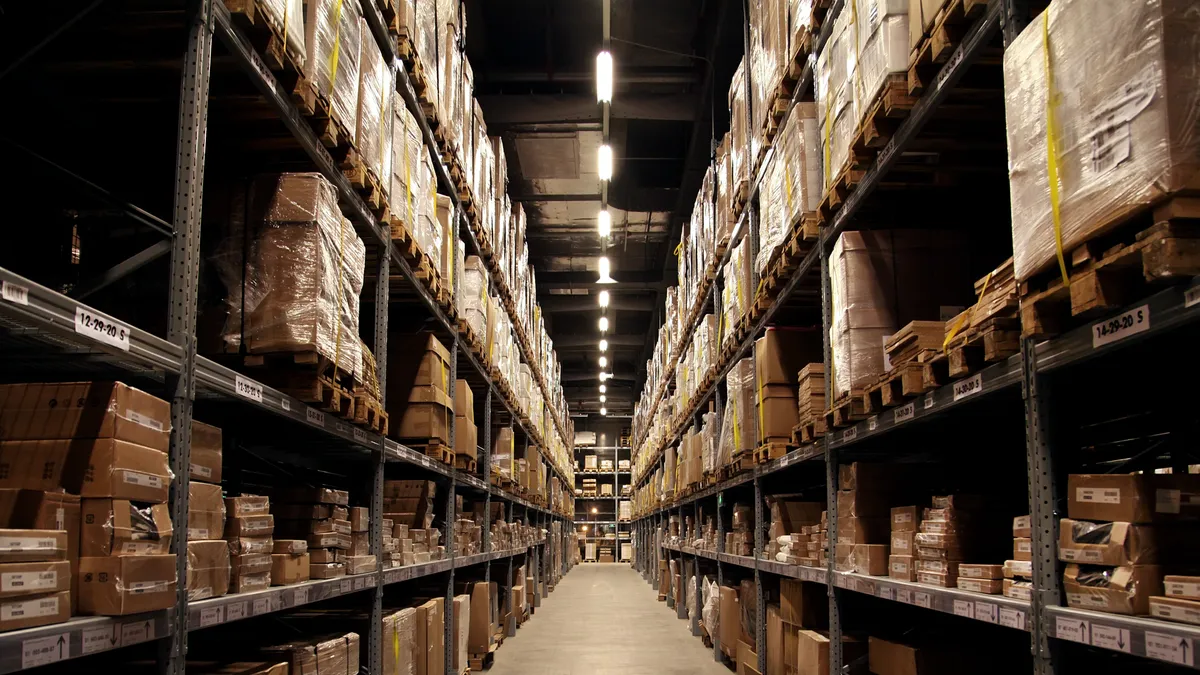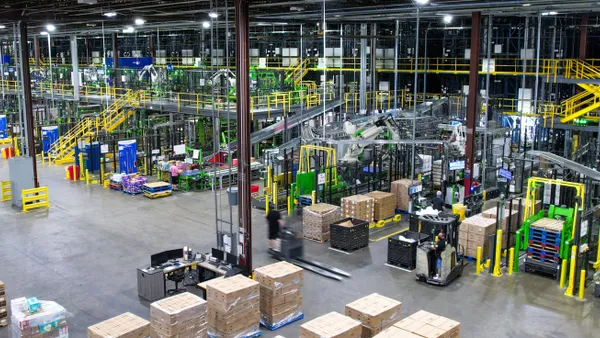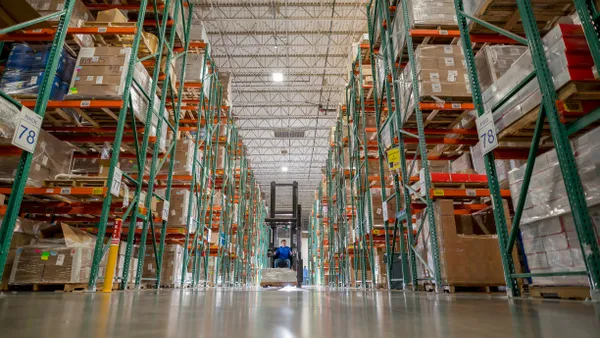Dive Brief:
- The Logistics Managers' Index (LMI), a measure of logistics activity, fell to 51.3 in April, an all-time low for the index, following a temporary surge in activity in March. Readings lower than 50 indicate the sector is shrinking and readings above 50 indicate growth.
- The index showed that warehouse capacity, transportation utilization and transportation prices all contracted in April.
- "This is interesting as this is the first time that Transportation Prices and Warehouse Capacity have both been in a state of contraction," the LMI report reads. "Over the 3.5 years of this index these measures have been negatively correlated. When demand for logistics services is high Warehouse Capacity decreases, and Transportation Prices increase. That they are moving in the same direction suggests that while demand is down for Transportation, inventories remain quite high and the demand for Warehousing is up."

Dive Insight:
Many businesses have had to figure out where to put inventory, as the pandemic has caused retail storefronts to close. Warehouse capacity was 46.7 and warehouse utilization was 60.7 on the LMI for April.
"Stuff is starting to arrive from Asia, and it doesn't have retail stores to go to," Dale Rogers, a professor of logistics and supply chain management at Arizona State University and part of the team that compiles the LMI, told Supply Chain Dive in an interview. "But you're seeing brand owners and some retailers need places to put stuff."
Shipments are down, and brands are canceling orders where they can. But the remaining inventory isn't able to move to its final selling point, and companies need a place to put it, Rogers said.
"This is an unusual situation, because usually you see tighter capacity when things are expanding, but not necessarily in this case," he said.
In some instances, shippers are turning to 3PLs to provide the warehouse capacity.
XPO CEO Bradley Jacobs said earlier this month that the company is "helping many, many customers" store goods coming in from China that have no demand. Customers who are reopening their businesses "need contract logistics help," he said.
Others are turning to platforms such as Flexe, which provides flexible warehousing space. "Those guys are getting lots of calls," said Rogers, who is a board advisor for Flexe.
Prologis pointed out in March that, historically, volatility in logistics issues "has correlated with stronger demand for logistics real estate."
"As it relates to fundamentals, logistics on the whole is better-positioned than other sectors given the potential boost to long-term demand from inventories and e-commerce," the Prologis report stated.
This story was first published in our weekly newsletter, Supply Chain Dive: Operations. Sign up here.














